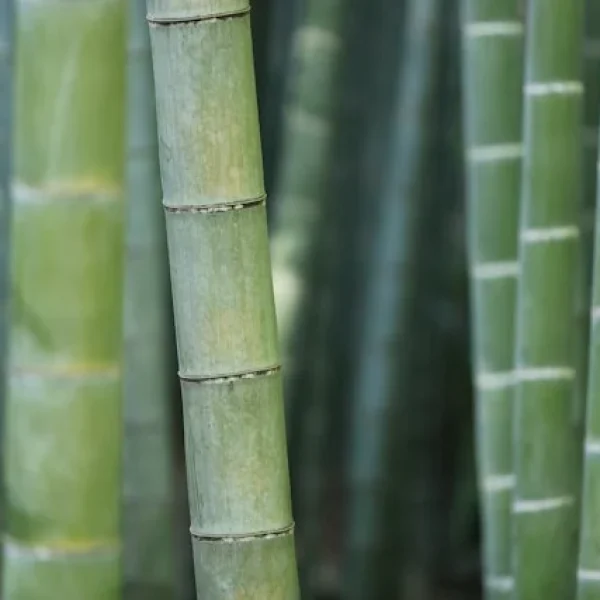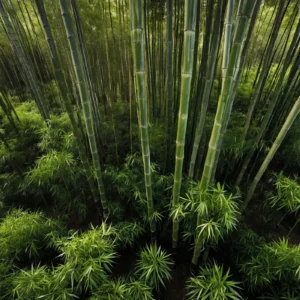Bamboo has been celebrated for centuries in various cultures for its versatility, strength, and sustainability. In recent years, it has garnered increasing attention in the realms of construction and manufacturing due to its eco-friendly properties and remarkable growth rate. As we look toward the future, several trends and developments highlight bamboo’s potential to revolutionize sustainable practices. Let’s explore the latest advancements and trends shaping the future of bamboo in construction and manufacturing.
Why Bamboo?
Sustainable Growth and Harvesting
One of bamboo’s most compelling features is its rapid growth rate. Unlike traditional hardwoods that can take decades to mature, bamboo reaches full maturity in just three to five years. This fast growth cycle makes it a highly renewable resource. Additionally, bamboo can be harvested without killing the plant, allowing for continuous growth and minimal soil erosion.
Carbon Sequestration
Bamboo is a champion when it comes to carbon sequestration. It absorbs more carbon dioxide and releases more oxygen compared to many other plants. This ability to capture carbon efficiently makes bamboo a valuable tool in combating climate change.
Strength and Durability
Despite its lightweight nature, bamboo boasts an impressive strength-to-weight ratio. It has been used in construction for millennia, proving its durability and resilience. Modern treatments and engineering techniques have further enhanced bamboo’s potential, making it suitable for a wide range of applications.
Trends in Bamboo Construction
Bamboo Architecture
Architects worldwide are embracing bamboo for its aesthetic and structural qualities. Innovative designs are incorporating bamboo into both traditional and contemporary architecture. Bamboo’s natural beauty and flexibility allow for creative, sustainable building solutions that stand out visually and functionally.
Prefabricated Bamboo Structures
Prefabrication is gaining traction in the construction industry, and bamboo is no exception. Prefabricated bamboo panels and modules can be mass-produced, reducing construction time and labor costs. These structures are not only sustainable but also highly efficient, providing a viable alternative to conventional building materials.
Bamboo in Urban Planning
Urban planners are recognizing bamboo’s potential in creating green, sustainable cities. Bamboo can be used for constructing public spaces, walkways, and even urban furniture. Its natural aesthetic and environmental benefits make it an ideal choice for integrating nature into urban environments.
Innovations in Bamboo Manufacturing
Advanced Bamboo Composites
Research and development in bamboo composites are yielding exciting results. Advanced bamboo composites, made by combining bamboo fibers with resins and other materials, offer enhanced strength and durability. These composites are being used in various industries, from automotive to aerospace, showcasing bamboo’s versatility.
Bamboo Textiles
The textile industry is witnessing a bamboo revolution. Bamboo fibers are being transformed into soft, durable, and eco-friendly fabrics. These textiles are not only sustainable but also possess natural antibacterial and moisture-wicking properties, making them ideal for clothing and home textiles.
Bamboo-Based Bioplastics
With the growing concern over plastic pollution, bamboo-based bioplastics are emerging as a sustainable alternative. These bioplastics are biodegradable and have a lower environmental impact compared to traditional plastics. As technology advances, bamboo bioplastics could replace conventional plastics in various applications, from packaging to consumer goods.
The Future Outlook
The future of bamboo in construction and manufacturing looks promising. With ongoing research and innovation, bamboo is set to play a crucial role in sustainable development. Here are some potential future scenarios:
Integration with Smart Technologies
The integration of bamboo with smart technologies could lead to the development of intelligent, sustainable structures. Smart sensors and monitoring systems embedded in bamboo materials could enhance building performance and maintenance.
Expansion into New Markets
As awareness of bamboo’s benefits grows, new markets and industries are likely to adopt bamboo-based solutions. From electronics to renewable energy, bamboo’s versatility could drive its adoption in diverse fields.
Enhanced Environmental Policies
Governments and organizations are increasingly promoting sustainable practices. Enhanced environmental policies and incentives could boost the adoption of bamboo in construction and manufacturing, supporting a greener future.
Conclusion
Bamboo’s remarkable properties and sustainability make it a powerful ally in the quest for greener construction and manufacturing practices. As innovations continue to emerge, bamboo is poised to revolutionize various industries, offering eco-friendly solutions that align with the goals of sustainable development. Embracing bamboo today could pave the way for a more resilient and environmentally conscious tomorrow.





